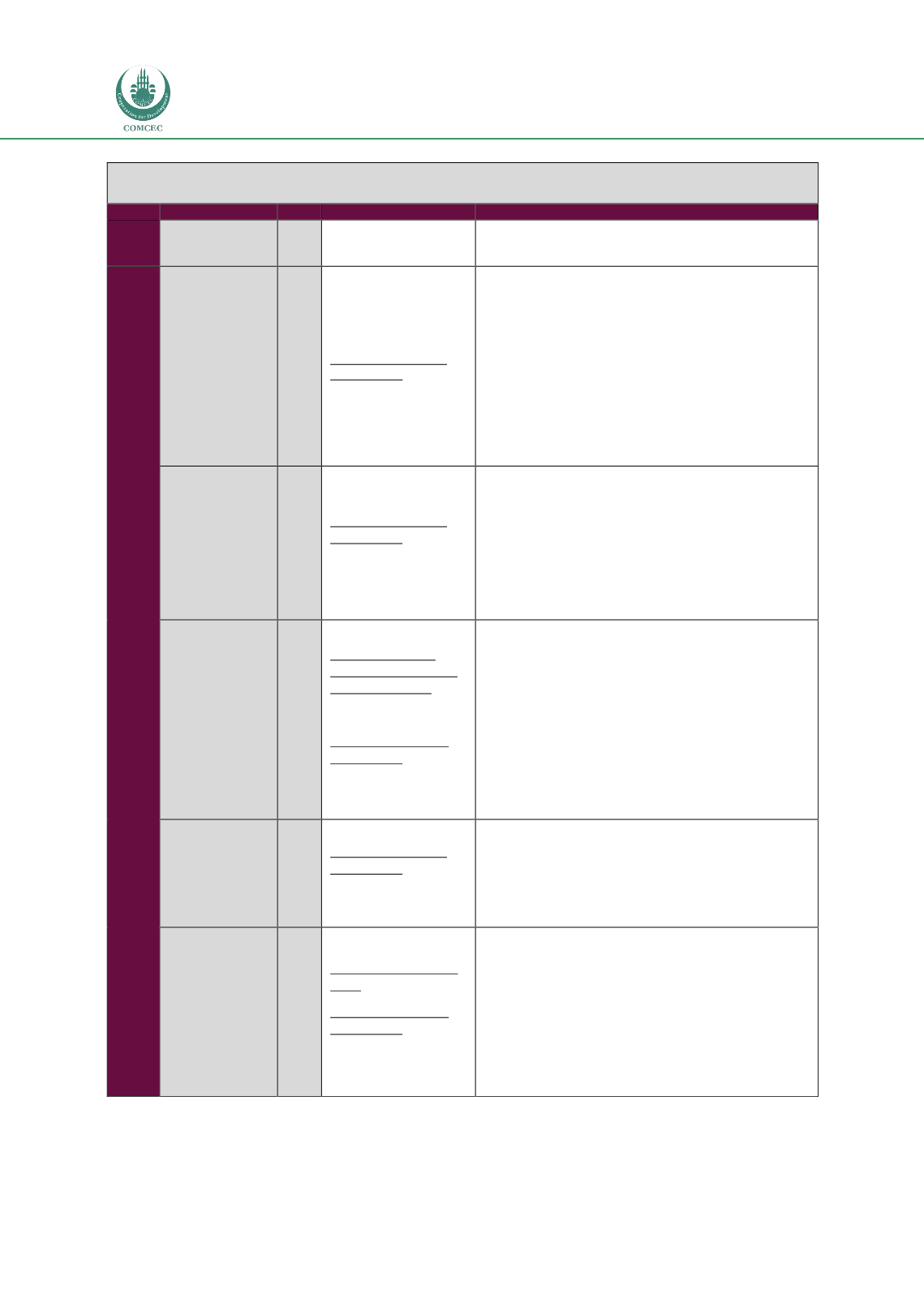

Improving Institutional Capacity:
Strengthening Farmer Organizations in the OIC Member Countries
100
3. Has the Government announced any recent policy initiatives explicitly designed to
encourage farmer organizations?
Group
Country
Y/N
Source
Comments
cultivated, (iii) Improving irrigation water usafe, (iv)
Reinforcing extension services provided to farmers, and (v)
Reinforcing the capabilities of cooperatives.
Arab Countries (cont’d)
Iraq
International Labour OrganizationYes, though since the start of the 2003 war. The 1958 Land
Reform Act was adopted specifically to encourage FOs and
help them increase productivity and returns. This initiative
was further empowered and strengthened during the rule of
Saddam Hussein, although the Ba'ath Party used
agricultural co-operatives as social and political groups as
well. After the invasion of Iraq in 2003, these policies were
slowed and at times completely disrupted. Following the
end of the war on Iraq, government support of FOs has
almost completely stopped. Co-operatives still exist;
however, they are seen as private entities. Also, with the
help of the United States, cooperatives have been recovering
in Iraq lately.
Jordan
International Labour OrganizationYes, though none recently. There have been multiple policy
intiatives launched by the Jordanian government to
encourage FOs. Some include: (1) The reform of the Jordan
Co-operative Organization to save it from bankruptcy
before deciding to finally dissolve it in 1995. (2) Reforming
the cooperative sector in 1998 with the assistance of the
World Bank with the stated goals of formulating a
comprehensive cooperative sector strategy and the design
of a cooperative development project to implement this
strategy.
Kuwait
Public Authority of Agriculture Affairs and Fishing Resources Food and Agriculture OrganizationYes, although not explicitly. The government of Kuwait has
adopted several policies to help FOs in Kuwait increase their
revenue and their efficiency. Given Kuwait's geographic
location and its persistent irrigation problems, many of the
policies targeted at the agriculture sector have aimed to
solve the problem of water scarcity and training irrigation
experts abroad, instead of actually focusing on FOs.
However, at a recent meeting between the head of Kuwait's
Public Authority of Agriculture Affairs & Fish Resources and
the secretary general of the Kuwaiti Farmers' Union, the
Kuwaiti minister promised to make more efforts to further
support FOs in Kuwait, given the current rise in the
expenses incurred by the farmers in the country.
Lebanon
International Labour OrganizationYes; Lebanon has announced and implemented many policy
initiatives designed to encourage cooperatives in general
and FOs in particular. Primary example: Based on a
recommendation from the ILO, in 2001, Lebanon launched
a project to help boost income generation in the South of
Lebanon; empowering FOs in the South was at the core of
the project.
Libya
National Agriculture in Libya Food and Agriculture OrganizationYes. Since 1992, the government relegated importation
licenses of certain products to cooperatives (to counter the
embargo and UN sanctions). And as part of the
liberalization process in the late 1990s, the government
supported agricultural associations by providing inputs
such as seeds, fertilizer, and foodstuffs -- a process that led
to the formation of a great number of cooperatives. More
recently, in 2012, the government and FAO developed a
joint program to increase food production (total budget is
US$ 71 million); beneficiaries will include farmer
cooperatives.

















